The Queensland Centre for Olympic and Paralympic Studies
Professor John Cairney – Centre Director
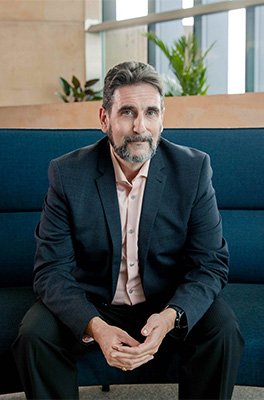
Professor John Cairney is Head of School at the UQ School of Human Movement and Nutrition Sciences and the newly appointed director of the Centre. He brings to the role more than 20 years of experience in research leadership, having led internationally renowned research centres in both Canada and Australia. Professor Cairney assumes the leadership of the Centre from Honorary Associate Professor Ian Jobling, its founding director from (2000-2023) and current Patron.
Professor Cairney leads a multidisplinary team of researchers and educators who offer a range of expertise on the Olympic and Paralympic Games, including sports science and sports medicine, history and sociology, business and law, pedagogy, psychology and coaching, engineering, biomechanics, epidemiology and public health, and sports technology.
Professor Cairney’s own expertise is as diverse as the centre itself. After initially completing a PhD in sociology, he is now a world-leader in paediatric exercise medicine and is engaged in with multiple dimensions of sport, exercise and health research, including public health, athlete development pathways, athlete mental health and well-being, youth sport participation, sport diplomacy, and sport history.
Dr Stephen Townsend
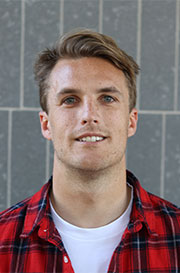
Dr Stephen Townsend is a historian whose research focuses on the social and cultural aspects of sport and health. Stephen is engaged in several research projects with The Centre, in particular the development of the UQ Olympic and Paralympic Hall of Fame. He is also an expert on the history of brain trauma in sport, race and racism in sport, and the digital humanities.
Dr Véronique Richard
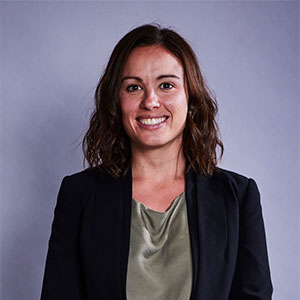
Dr. Véronique Richard is an esteemed expert in mental performance, with a focus on using creative practices and designing creativity-supportive environments to enhance performance and well-being in athletes and performing artists. She served as a consultant to the Canadian Olympic Team (waterpolo & artistic swimming) to the Tokyo 2021 Olympics. She currently leads multiple research projects in collaboration with the Australian Institute of Sport, SASI netball, Tennis Australia, and professional sports. She also acts as a consultant with AusCycling and Squash Australia. Her work underscores the importance of innovative approaches in optimizing human potential across various domains.
Associate Professor Steven Rynne
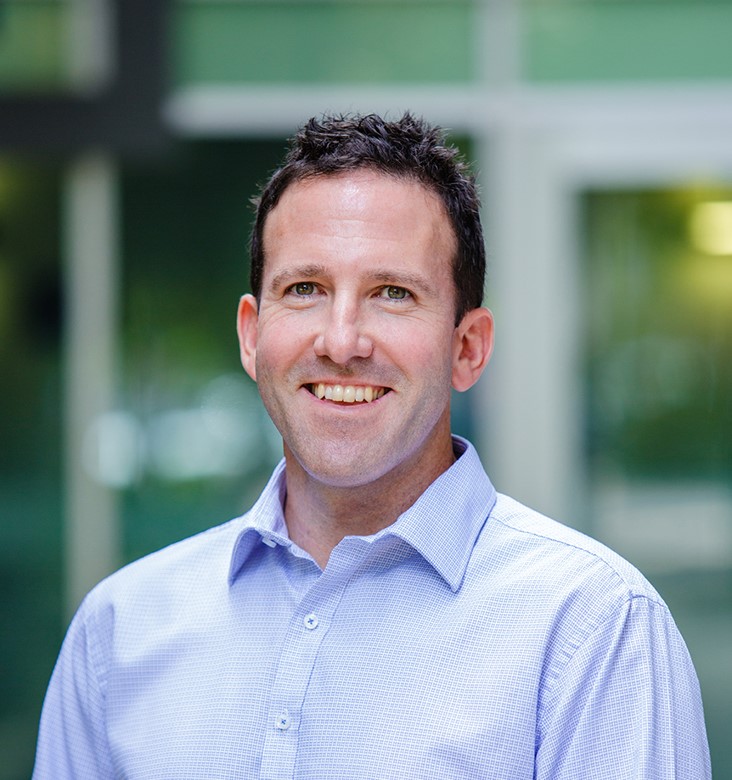 Associate Professor Steven Rynne is the Program Convenor for Sports Coaching at The University of Queensland. With a professional background in, and ongoing research focus on pedagogy, Steven has extensive expertise fostering sporting outcomes through high quality learning. Within the broad theme of learning in sport, he has worked and conducted research with a variety of peak domestic and international sporting bodies aimed at fostering high performance through learning (e.g. how Olympic coaches learn their craft) and understanding outcomes for sport participants (e.g. sport for reconciliation). Steven teaches undergraduate and graduate students, is a registered HPE teacher, and has been involved in community sport for more than 20 years.
Associate Professor Steven Rynne is the Program Convenor for Sports Coaching at The University of Queensland. With a professional background in, and ongoing research focus on pedagogy, Steven has extensive expertise fostering sporting outcomes through high quality learning. Within the broad theme of learning in sport, he has worked and conducted research with a variety of peak domestic and international sporting bodies aimed at fostering high performance through learning (e.g. how Olympic coaches learn their craft) and understanding outcomes for sport participants (e.g. sport for reconciliation). Steven teaches undergraduate and graduate students, is a registered HPE teacher, and has been involved in community sport for more than 20 years.
Associate Professor Emma Beckman
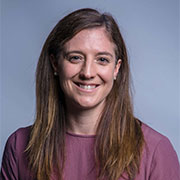 Associate Professor Emma Beckman is a Teaching and Research academic at the University of Queensland. Emma is passionate about engaging in research to improve the lives of people with a disability through sports, physical activity, and exercise. Following a master’s degree in Adapted physical activity, Emma completed her PhD in strength assessment for classification in Para Sport.
Associate Professor Emma Beckman is a Teaching and Research academic at the University of Queensland. Emma is passionate about engaging in research to improve the lives of people with a disability through sports, physical activity, and exercise. Following a master’s degree in Adapted physical activity, Emma completed her PhD in strength assessment for classification in Para Sport.
She is currently a co-investigator in the UQ IPC Classification Research Partnership, and an internationally accredited classifier in Para Athletics having classified at numerous world championships and two Paralympic Games. Her interests in Para Sport range from classification (evidence based and best practice, as well as intentional misrepresentation) to grassroots participation and talent identification to developing specialised para sport coaches and high performance pathways for all para athletes- but particularly those with high support needs
Emma is currently on secondment in a joint role with UQ, Paralympics Australia and the Queensland Academy of Sport. Visit the HaBS youtube channel to hear about this secondment and the great work Emma is contributing to at QAS.
Professor Sean Tweedy
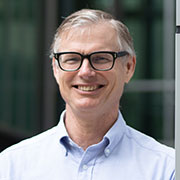 In 1984, Professor Tweedy graduated from the Bachelor of Human Movement Studies at UQ and began work at the Sporting Wheelies as the Coordinator of Australia's first community-based health and fitness facility for people with disabilities. Since then he has worked continuously in the field and has been at the University of Queensland’s School of Human Movement and Nutrition Sciences since 1997.
In 1984, Professor Tweedy graduated from the Bachelor of Human Movement Studies at UQ and began work at the Sporting Wheelies as the Coordinator of Australia's first community-based health and fitness facility for people with disabilities. Since then he has worked continuously in the field and has been at the University of Queensland’s School of Human Movement and Nutrition Sciences since 1997.
He leads three community service programs at the school: ParaSTART, which provides performance focused sports training for people with high support needs who are eligible to compete in Para sport; the Adapted Physical Activity Program, a home and community-based physical activity promotion service for community dwelling people with disabilities; and Motor Active, which assists young children to acquire age-appropriate motor skills.
Each of these programs provides students with valuable experiential learning and is supported by an applied research program for continuous improvement. Sean has classified at 4 Paralympic games, wrote the International Paralympic Committee's (IPC) position statement on classification, is Principal investigator for the UQ-IPC Classification Research and Development Centre and sits on the IPCs Classification Compliance and Oversight Committee.
Björn Galjaardt
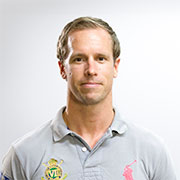 Björn Galjaardt has a Bachelor in Education (HPE), completed a Masters in Sports Coaching at the University of Queensland and is a Queensland Academy of Sport scholarship holder. He is a PhD-candidate, researching the intersections of Olympic coaches’ learning and experiences from multiple Olympic cycles.
Björn Galjaardt has a Bachelor in Education (HPE), completed a Masters in Sports Coaching at the University of Queensland and is a Queensland Academy of Sport scholarship holder. He is a PhD-candidate, researching the intersections of Olympic coaches’ learning and experiences from multiple Olympic cycles.
Galjaardt's aim is to create guidelines to best prepare coaches, projected to subsequently enhance athletes’ preparation, for their dream event. The PhD is focussed on learning in a pedagogical context, with the opportunity to support the coaching pathway towards the Brisbane 2032 Games. As a side note, Björn’s interest in Olympic studies and research is underpinned by his nomination and attendance of the postgraduate course at the International Olympic Academy in Olympia, Greece.
Associate Professor Judith Mair
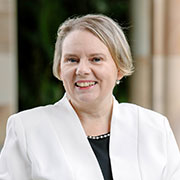 Judith Mair is an Associate Professor in the Tourism Discipline of the UQ Business School. She graduated from the University of Strathclyde in Glasgow, Scotland in 2005 with a PhD focussing on event attendance motivations and joined UQ in 2014. Judith’s work aims to understand and enhance the positive impacts of tourism and events on the communities and societies which host them.
Judith Mair is an Associate Professor in the Tourism Discipline of the UQ Business School. She graduated from the University of Strathclyde in Glasgow, Scotland in 2005 with a PhD focussing on event attendance motivations and joined UQ in 2014. Judith’s work aims to understand and enhance the positive impacts of tourism and events on the communities and societies which host them.
Her research expertise lies in fields including mega-event legacies, the future of events, the links between events and social connectivity, and the potential impacts of climate change on the events sector. She has worked with the International Olympics Olympic Committee and the Queensland Government on projects including event legacies, understanding social impacts of tourism and events, and assessing the impacts of climate change on the sector.
Associate Professor David M. Pritchard
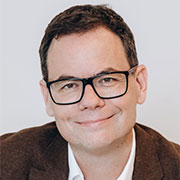 Associate Professor David M. Pritchard teaches sports history at the University of Queensland. His first job as an historian of ancient Greece was on the cultural program of the Sydney 2000 Olympic Games.
Associate Professor David M. Pritchard teaches sports history at the University of Queensland. His first job as an historian of ancient Greece was on the cultural program of the Sydney 2000 Olympic Games.
He is the author of three sole-authored books, including Sport, Democracy and War in Classical Athens (Cambridge University Press 2013), and the editor of three edited books, including Sport and Festival in Ancient Greek World (Classical Press of Wales 2003).
He has obtained 15 fellowships in Australia, Europe and the US. He speaks on radio and regularly writes for newspapers around the world. His 50 op.-eds have appeared in Die Süddeutsche Zeitung (Germany), Le Monde (France), Le Figaro (France), Ouest-France, Kathimerini (Greece), Scroll.in (India), The Age (Australia), The Australian and Politike (Brazil). Associate Professor Pritchard obtained his PhD in Ancient History from Macquarie University (Australia).
Dr Caroline Riot
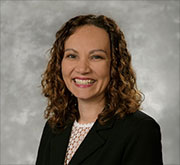 Dr Riot is the Director, Games Partnerships and Engagement and is working with the Griffith University Office of the Vice President Industry and External Engagement to lead the university’s Games impact and legacy strategy for the Brisbane 2032 Olympic and Paralympic Games. Caroline is building partnerships with key external organisations, acting as the conduit for Olympic and Paralympic related activities, and continues her Olympic Movement research in high performance sport and sports diplomacy.
Dr Riot is the Director, Games Partnerships and Engagement and is working with the Griffith University Office of the Vice President Industry and External Engagement to lead the university’s Games impact and legacy strategy for the Brisbane 2032 Olympic and Paralympic Games. Caroline is building partnerships with key external organisations, acting as the conduit for Olympic and Paralympic related activities, and continues her Olympic Movement research in high performance sport and sports diplomacy.
As a pro-active leader of partnerships across universities, industry, and government, Caroline is a highly engaged researcher in international high performance sport in developed and developing countries with a focus on elite athlete and coach development, para-sport, and women's well-being through sport and physical activity. Caroline prides herself on transdisciplinary approaches to solve challenges and is widely published in highly ranked journals. Prior to her academic career, Caroline worked with the Queensland Police Service, International Sport Unit of the Queensland Government, the International Olympic Committee as project lead for an internationally funded grant across 8-countries, and represented Australia twice at International Olympic Academy forums in Olympia, Greece.
Professor Brenda Gannon
 Professor Brenda Gannon is a Professor in the School of Economics at The University of Queensland. She was Director of Research in the School of Economics from 2018-2023. Professor Gannon is an international expert in the field of applied health economics and has won over $30 million, as chief investigator, in collaborative interdisciplinary research income, with economics, medicine and social science with academia and industry. Her expertise in longitudinal data lends to several projects in ageing and child health. In previous roles she contributed to development of a national sports participation survey and led reporting of data analysis for government agencies. She has developed a range of projects in topics of physical activity and health economics. She has developed a cost-benefit framework for investment in community sports, most recently with Netball Queensland. In 2023, Professor Gannon was elected a Fellow of the Queensland Academy of Arts and Sciences. As a competitive athlete at an international level, she has a global network in the Olympic space, sports science, and sport event management.
Professor Brenda Gannon is a Professor in the School of Economics at The University of Queensland. She was Director of Research in the School of Economics from 2018-2023. Professor Gannon is an international expert in the field of applied health economics and has won over $30 million, as chief investigator, in collaborative interdisciplinary research income, with economics, medicine and social science with academia and industry. Her expertise in longitudinal data lends to several projects in ageing and child health. In previous roles she contributed to development of a national sports participation survey and led reporting of data analysis for government agencies. She has developed a range of projects in topics of physical activity and health economics. She has developed a cost-benefit framework for investment in community sports, most recently with Netball Queensland. In 2023, Professor Gannon was elected a Fellow of the Queensland Academy of Arts and Sciences. As a competitive athlete at an international level, she has a global network in the Olympic space, sports science, and sport event management.
Dr Robyn Littlewood
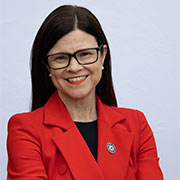 Dr Robyn Littlewood is the CEO of Health and Wellbeing Queensland (HWQld), the state’s prevention agency committed to fostering a healthier and more equitable Queensland. HWQld has a critical role to play in health legacy for Brisbane 2032.
Dr Robyn Littlewood is the CEO of Health and Wellbeing Queensland (HWQld), the state’s prevention agency committed to fostering a healthier and more equitable Queensland. HWQld has a critical role to play in health legacy for Brisbane 2032.
With over 25 years of experience in clinical care, research and education, Dr Littlewood has made significant contributions to paediatric healthcare. Dr Littlewood is a published author with over 100 publications and has recently released her first book on health and wellbeing for Queensland. She has trained hundreds of students over two decades of frontline service.
Leveraging a systems-based and collaborative approach, Dr Littlewood continues to drive research and data outcomes in the area of health and wellbeing. Dr Littlewood leads a dedicated team focused on making healthy happen for all Queenslanders, with a particular focus on improving health outcomes for our next generation.
Dr Littlewood holds a raft of formal qualifications including a Bachelor of Science and Postgraduate Diploma in Nutrition and Dietetics, a Master of Medical Science, a Masters of Business Administration and a PhD. Dr Littlewood has also completed a number of postgraduate qualifications in executive leadership and is a member of the Australian Institute of Company Directors. Dr Littlewood holds Adjunct Professor appointments from UQ, QUT and Griffith universities, has been awarded Fellow of Dietitians Australia, the Barbara Chester Award and QUT Health Alumni of the year in recognition of her outstanding contribution to the dietetics profession.
Associate Professor Gary Osmond
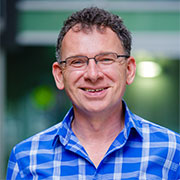 Associate Professor Gary Osmond is a sport historian in the School of Human Movement and Nutrition Sciences at The University of Queensland. He is the course coordinator for HIST3003 ‘Playing on the Big Stage: Histories of the Olympics and Paralympics’.
Associate Professor Gary Osmond is a sport historian in the School of Human Movement and Nutrition Sciences at The University of Queensland. He is the course coordinator for HIST3003 ‘Playing on the Big Stage: Histories of the Olympics and Paralympics’.
Gary’s research interests include Aboriginal and Torres Strait Islander participation in the Olympic and Paralympic Games. He has published on Olympic and Paralympic themes in the Journal of Olympic Studies, the Journal of Sport History, The Conversation, the Australian Dictionary of Biography, and elsewhere.
Associate Professor Osmond was a Chief Investigator on an ARC Linkage digital history project (LP130101031: 2014-2019) titled Creating Histories of the Australian Paralympic Movement: A New Relationship between Researchers and the Community [Murray G. Phillips, Gary Osmond, Tony Naar (Australian Paralympic Committee)]. That project developed the interactive website Paralympic Stories, which is a central element of Paralympics Australia’s ‘Australian Paralympic History Project’.
Associated Professor Monica Chien
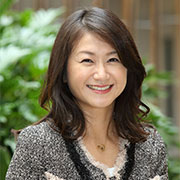 Dr. Monica Chien, an Associate Professor at the University of Queensland Business School, is renowned for her research in sport marketing, sponsorship, tourism and mega-event impact studies (including past Olympic and Paralympic Games), sustainable tourist behaviour, and destination marketing. Internationally recognised for her thought leadership, she has published in leading academic journals, received multiple awards for teaching and research, and secured competitive grants and prestigious fellowships both in Australia and internationally.
Dr. Monica Chien, an Associate Professor at the University of Queensland Business School, is renowned for her research in sport marketing, sponsorship, tourism and mega-event impact studies (including past Olympic and Paralympic Games), sustainable tourist behaviour, and destination marketing. Internationally recognised for her thought leadership, she has published in leading academic journals, received multiple awards for teaching and research, and secured competitive grants and prestigious fellowships both in Australia and internationally.
As a globally connected business strategist, Dr. Chien advises industry and government, including various Japanese municipalities. She regularly delivers keynotes and presentations at prominent academic and industry conferences and is widely cited in the media for her expertise. Her extensive international experience and proficiency in multiple languages enhances her engagement with diverse stakeholders.
Professor Murray Phillips
 Murray Phillips is a Professor of Sport History in the School of Human Movement and Nutrition Sciences at the University of Queensland. He has been the Interim Head of the School of Human Movement and Nutrition Sciences and former Acting Director of the University of Queensland’s Poche Centre for Indigenous Health. He is the Past-President of the North American Society for Sport History, former President of the Australian Society for Sport History, and former Editor of the Journal of Sport History.
Murray Phillips is a Professor of Sport History in the School of Human Movement and Nutrition Sciences at the University of Queensland. He has been the Interim Head of the School of Human Movement and Nutrition Sciences and former Acting Director of the University of Queensland’s Poche Centre for Indigenous Health. He is the Past-President of the North American Society for Sport History, former President of the Australian Society for Sport History, and former Editor of the Journal of Sport History.
His research areas are focussed on Indigenous identities and sport, as well as disability sport, philosophical debates about sport history, understanding the role of sport museums, and conceptualising changes to sport history in the digital age. Professor Phillips along with Associate Professor Osmond were the Chief Investigators on an ARC Linkage digital history project (LP130101031: 2014-2019) titled Creating Histories of the Australian Paralympic Movement: A New Relationship between Researchers and the Community [Murray G. Phillips, Gary Osmond, Tony Naar (Australian Paralympic Committee)]. That project developed the interactive website Paralympic Stories (https://paralympichistory.org.au/), over 1000 Wikipedia articles, and a written history entitled Fit, Able and Willing: A History of the Australian Paralympic Movement (Forthcoming, 2025).
Professor Doune Macdonald
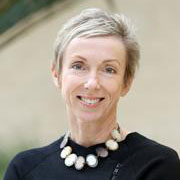 Doune’s background is in health and physical education (HPE) and young people’s health and physical activity. She has published 14 books and more than 200 book chapters and research papers in curriculum, policy, and equity largely funded by national competitive grants, and has undertaken curriculum and program evaluations for state and national sport, physical activity and health initiatives. Her national and international expertise led to her appointment as the Lead Writer for the Australian Curriculum: Health and Physical Education. Doune’s 30 years at the forefront of HPE policy and practice has included research aiming to understand shifts in schooling and tertiary sectors through the lens of curriculum-as-policy and practice, professional socialisation, power, global neoliberalization and identity construction, as societal and government interest in the “healthy and physically active citizen” has escalated.
Doune’s background is in health and physical education (HPE) and young people’s health and physical activity. She has published 14 books and more than 200 book chapters and research papers in curriculum, policy, and equity largely funded by national competitive grants, and has undertaken curriculum and program evaluations for state and national sport, physical activity and health initiatives. Her national and international expertise led to her appointment as the Lead Writer for the Australian Curriculum: Health and Physical Education. Doune’s 30 years at the forefront of HPE policy and practice has included research aiming to understand shifts in schooling and tertiary sectors through the lens of curriculum-as-policy and practice, professional socialisation, power, global neoliberalization and identity construction, as societal and government interest in the “healthy and physically active citizen” has escalated.
From 2004-2013 Doune served as the Head of School of Human Movement Studies, The University of Queensland before taking on a role as a Collaborative Research Network Co-ordinator (UQ/Central Qld University) followed by her appointment as the Pro-Vice-Chancellor (Teaching & Learning), UQ. In this executive role she is responsible for achieving UQ’s teaching and learning objectives, including innovation in teaching and learning, digital learning, development and recognition of excellent teaching, quality assurance and enhancement, and research in teaching and learning that centres on improving student learning outcomes.
She is an International Fellow of the National Academy of Kinesiology, USA, and of the Association Internationale des Ecole’s Superieures d'Education Physique (AIESEP). She sits on the Board of the Queensland Curriculum and Assessment Authority and the Centre for Youth Substance Abuse Research Advisory Group.
Professor Peter Soyer
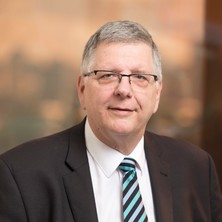 Professor H. Peter Soyer was appointed as Inaugural Chair in Dermatology by the University of Queensland in 2007 and was Director of the Princess Alexandra Hospital Dermatology Department from 2008 to 2023. He is a fellow of the Australian Academy of Health and Medical Sciences. His research focus is skin cancer / melanoma with a particular interest in technological innovations and the integration of AI into melanoma screening. In 2018, Soyer was awarded a $9.9M infrastructure grant by the Australian Cancer Research Foundation and has established and is leading the Australian Centre of Excellence in Melanoma Imaging and Diagnosis (ACEMID). Recently, he initiated research into melanoma in elite swimmers and is an advocate for SunSafe Olympics in Brisbane.
Professor H. Peter Soyer was appointed as Inaugural Chair in Dermatology by the University of Queensland in 2007 and was Director of the Princess Alexandra Hospital Dermatology Department from 2008 to 2023. He is a fellow of the Australian Academy of Health and Medical Sciences. His research focus is skin cancer / melanoma with a particular interest in technological innovations and the integration of AI into melanoma screening. In 2018, Soyer was awarded a $9.9M infrastructure grant by the Australian Cancer Research Foundation and has established and is leading the Australian Centre of Excellence in Melanoma Imaging and Diagnosis (ACEMID). Recently, he initiated research into melanoma in elite swimmers and is an advocate for SunSafe Olympics in Brisbane.
Professor Monika Janda
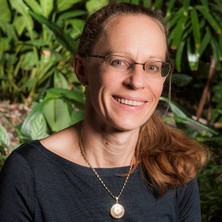 Professor Monika Janda is the Director, Centre for Health Services Research, The University of Queensland. Prof Janda was a member of the Australian Psychological Society (APS), and the College of Health Psychologists, served on the APS Technology Working Group, and on the Australasian College of Dermatologists’ Professional Standards Committee. Janda was awarded a NHMRC Leadership Fellowship L3 Fellowship (2025-29) to progress behavioural science in melanoma and skin cancer research, and also leads a NHMRC CRE (2021-2025), and NHMRC Synergy program (2022-2026). Internationally, Janda is one of the most productive authors in the topic area "early detection and skin cancer" (publications between 2017-2022, Web of Science August 2023). In the past five years, Janda has produced more than 100 publications (Scopus, August 2023) and presented work at many national and international conferences. Janda’s articles have been downloaded > 30,000 times from the Universities’ open access e-prints platforms, and informed prevention and clinical practice guidelines. She is the co-chair of Skin Cancer Prevention Queensland, a collaboration between government, University, and NGOs. Recently she worked with Prof HP Soyer on research into melanoma in elite swimmers and together they advocate for SunSafe Olympics in Brisbane.
Professor Monika Janda is the Director, Centre for Health Services Research, The University of Queensland. Prof Janda was a member of the Australian Psychological Society (APS), and the College of Health Psychologists, served on the APS Technology Working Group, and on the Australasian College of Dermatologists’ Professional Standards Committee. Janda was awarded a NHMRC Leadership Fellowship L3 Fellowship (2025-29) to progress behavioural science in melanoma and skin cancer research, and also leads a NHMRC CRE (2021-2025), and NHMRC Synergy program (2022-2026). Internationally, Janda is one of the most productive authors in the topic area "early detection and skin cancer" (publications between 2017-2022, Web of Science August 2023). In the past five years, Janda has produced more than 100 publications (Scopus, August 2023) and presented work at many national and international conferences. Janda’s articles have been downloaded > 30,000 times from the Universities’ open access e-prints platforms, and informed prevention and clinical practice guidelines. She is the co-chair of Skin Cancer Prevention Queensland, a collaboration between government, University, and NGOs. Recently she worked with Prof HP Soyer on research into melanoma in elite swimmers and together they advocate for SunSafe Olympics in Brisbane.
Dr Jane Hunt
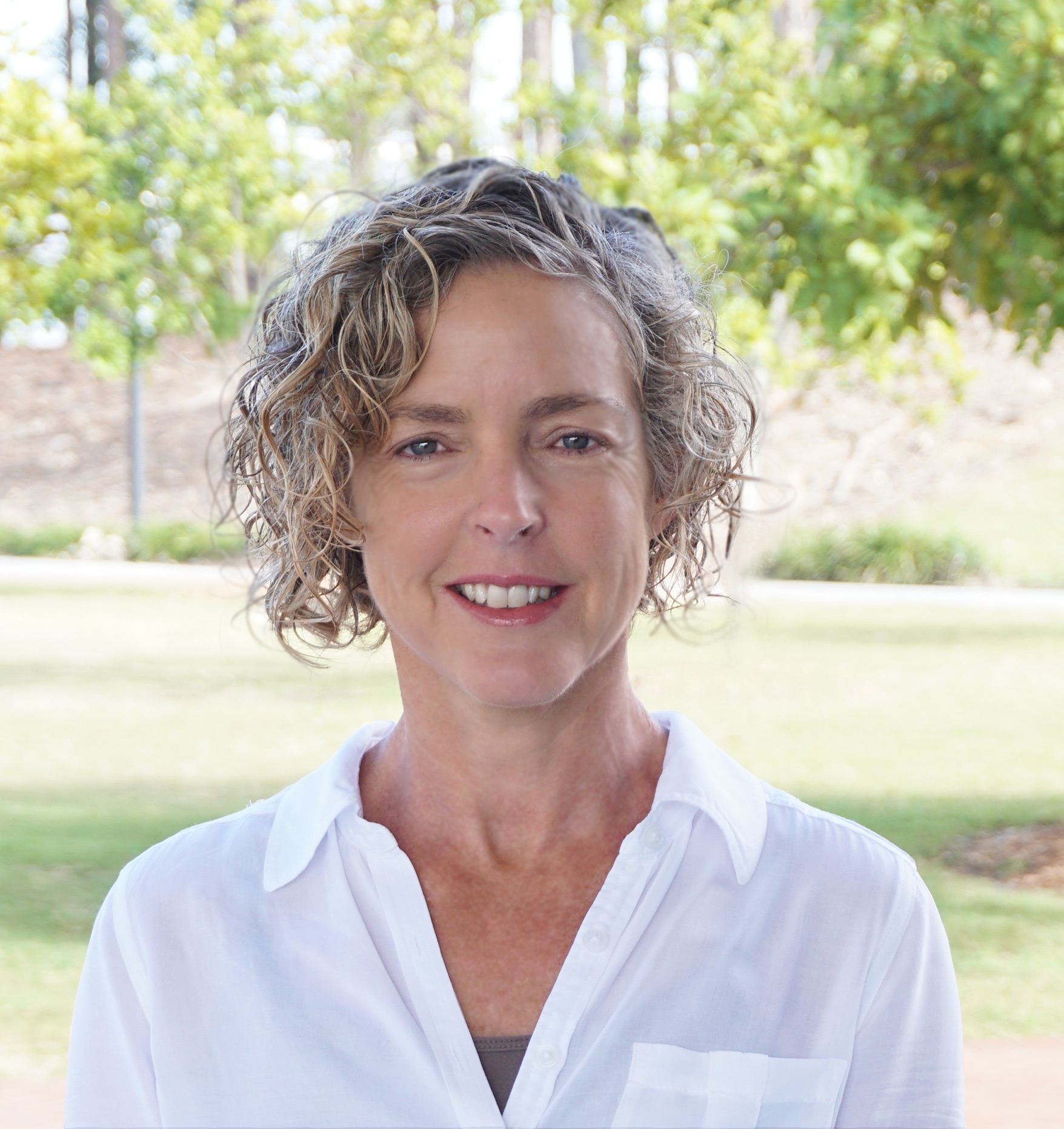 Dr Hunt is an Assistant Professor at Bond University focusing on Australian Studies and Research Methods. Recipient of the 2009 Fryer Library Award, she has published articles in Australian history, sport history, women’s history, and sport and memory, six entries in the Australian Dictionary of Biography and three books in sport history including two aimed at fostering the voice and visibility of women in sport. Dr Hunt’s current research interests focus on women in triathlon, and the gendered structures of knowledge about sport. A member of the Triathlon Australia Awards Committee, Bond University Women’s Network Committee, she is the current President of the Australian Society for Sport History.
Dr Hunt is an Assistant Professor at Bond University focusing on Australian Studies and Research Methods. Recipient of the 2009 Fryer Library Award, she has published articles in Australian history, sport history, women’s history, and sport and memory, six entries in the Australian Dictionary of Biography and three books in sport history including two aimed at fostering the voice and visibility of women in sport. Dr Hunt’s current research interests focus on women in triathlon, and the gendered structures of knowledge about sport. A member of the Triathlon Australia Awards Committee, Bond University Women’s Network Committee, she is the current President of the Australian Society for Sport History.
Professor David Legg
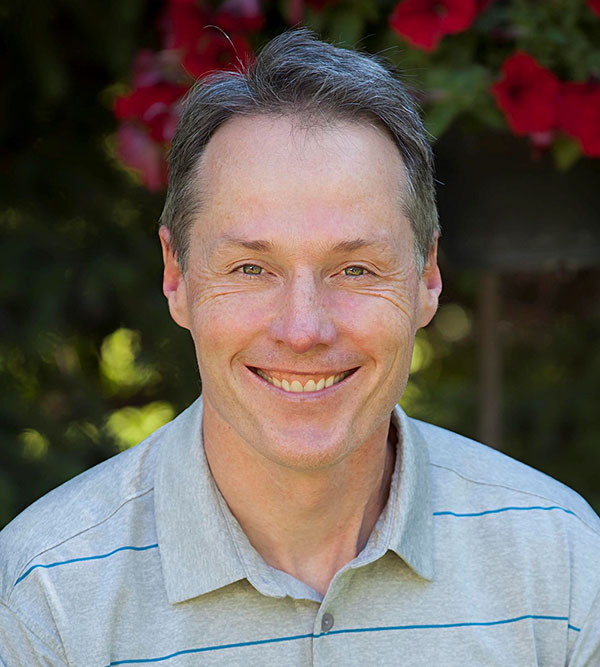
David Legg is Professor of Sport Management and Adapted Physical Activity at Mount Royal University in Calgary, Canada. Dr. Legg has also been a visiting or adjunct scholar at seven other Universities around the globe. His research centres on the Paralympic movement and primarily the legacy of the Games.
As a volunteer David has served as President of the Canadian Paralympic Committee, board member for the 2015 Pan Parapan American Games in Toronto, the International Paralympic Committee’s Sport Science Committee, and as President of the International Federation of Adapted Physical Activity. He is currently the Founder and Chair of the Calgary Adapted Hub Powered by Jumpstart, a board member for Commonwealth Sport Canada, board member for the International Council of Sport Science and Physical Education (ICSSPE) and incoming Chair of the Calgary Sport and Major Event Committee. As a consultant, David worked with the Calgary BidCo for the 2026 Olympic and Paralympic Games, the 2030 Alberta Commonwealth Games bid and with Hockey Canada and the Calgary Sports and Entertainment Corporation.
In recognition of his contributions, Dr. Legg has received the Queen Elizabeth II Platinum and Diamond Jubilee Medals, University of Alberta Alumni Honour Award, King Clancy Award from the Canadian Foundation for Physically Disabled Persons, and Gary McPherson Leadership Award from the Province of Alberta. David has also received the City of Calgary White Hat award, been named to Calgary's Top 40/40 and been inducted into Alberta's Sports Hall of Fame.
Professor Rick Burton
Rick Burton is the David Falk Distinguished Professor of Sport Management at Syracuse University and author or co-author of numerous sports business books including Business the NHL Way: Lessons from the Fastest Game on Ice, Sport Business Unplugged and 20 Secrets to Success for NCAA Student Athletes. His latest effort (with Norm O’Reilly), The Rise of Major League Soccer: Building a Global Giant, will be published by Lyons in May 2025.
He is the former chief marketing officer for the U.S. Olympic Committee (for the Beijing 2008 Summer Olympics) and Commissioner of Australia’s National Basketball League (2003-07). His consultancy, Burton Marketing Group, has worked with entities such as the NFL, NHL, FedEx, Visa and numerous professional teams.
A graduate of Syracuse University’s S.I. Newhouse School of Public Communications (BS) and Marquette University’s Business School (MBA), Burton has also served as a visiting professor at Kufstein University in Austria and was Syracuse’s Faculty Athletics Representative (FAR) to the ACC and NCAA from 2014-2022. He is a regular columnist for Sports Business Journal (with Norm O’Reilly) and Sportico. He has also written for the New York Times, Wall Street Journal and SI.com. His scholarly research has been published in more than 10 different journals.
Dr Adam Scott

Adjunct Professor Adam Scott is the Director of Cardiac Sciences at the RBWH and the Founder/Chairperson of the White Cloud Foundation. Adam is passionate about creating solutions for problems to under-resourced areas of Australia.
He created the Cardiovascular Telemedicine Program in Rural Australia to enable easy and early access to cardiac investigations in rural and remote areas of Queensland. In 2011, Adam set up the White Cloud Foundation, a mental health charity, to remove the barriers to accessing treatment for people living with anxiety and/or depression. Adam created the Tele-Mental Health service, offering free access to multi-disciplinary treatment, and has partnered with 28 state and national sporting associations to offer this service to all members, staff, officials, coaches, officials, judges, volunteers, family and friends from 12 years of age and above.
Adam was recognised as a finalist for the Qld Australian of the Year and was awarded the Athletics Australia “Peter Norman Humanitarian Award” in 2024. He has a PhD in Cardiac Medicine at Imperial College, University of London, and holds an adjunct Professor appointment at QUT.
Dr Genevieve Healy
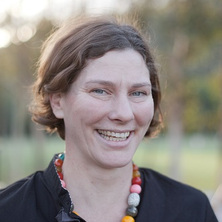 Genevieve is a Professor of Physical Activity and Health at the University of Queensland. Her research focuses on sedentary behaviour and physical activity in adults across the 24-hour day, including understanding impacts on health, wellbeing and performance, and the feasibility, acceptability and sustainability of modifying these behaviours in key settings and populations including desk-based workers and those with or at risk of type 2 diabetes. Co-design with stakeholders and end-users is embedded across her research program, which includes working with government, clinical, public health, private industry, not-for-profit, community and workplace partners in research and its’ translation into policy and practice.
Genevieve is a Professor of Physical Activity and Health at the University of Queensland. Her research focuses on sedentary behaviour and physical activity in adults across the 24-hour day, including understanding impacts on health, wellbeing and performance, and the feasibility, acceptability and sustainability of modifying these behaviours in key settings and populations including desk-based workers and those with or at risk of type 2 diabetes. Co-design with stakeholders and end-users is embedded across her research program, which includes working with government, clinical, public health, private industry, not-for-profit, community and workplace partners in research and its’ translation into policy and practice.
Dr Jess Hill
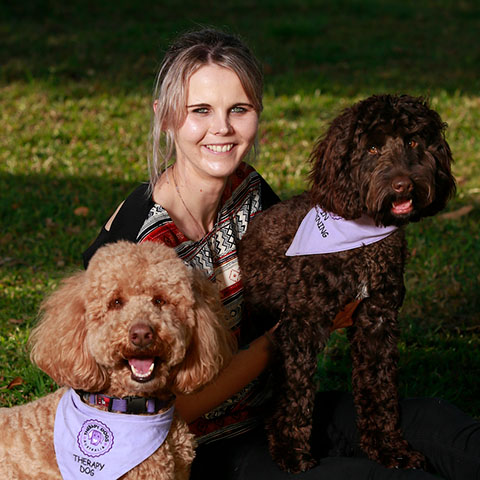 Jess is an Occupational Therapist, certified Personal Trainer and Lecturer, in the School of Health and Rehabilitation Sciences at The University of Queensland. Clinically, Jess has over ten years’ experience supporting people with disability to participate in community sport and recreation. Jess’ research currently focuses on methods to support people with disability maximise their participation and engagement within community sport and recreation opportunities, with a focus on people with high support needs.
Jess is an Occupational Therapist, certified Personal Trainer and Lecturer, in the School of Health and Rehabilitation Sciences at The University of Queensland. Clinically, Jess has over ten years’ experience supporting people with disability to participate in community sport and recreation. Jess’ research currently focuses on methods to support people with disability maximise their participation and engagement within community sport and recreation opportunities, with a focus on people with high support needs.
Jess is currently leading multiple projects to develop tools and resources to better equip community coaches to support people with disability within their organisation. Additionally, she is leading several studies to better understand how the daily routines of people with disability could be enhanced to maximise their participation and performance within their chosen sport.
Professor Tim Carroll
Professor Tim Carroll is Professor in sensorimotor control who studies how and why we move the way that we do, and how we adapt our movements to changes in the environment or our bodies. He has conducted work on rapid movements and error corrections, neural mechanisms of strength acquisition, and skill learning tasks, and has given invited presentations or consultancies to national institutes of sport, professional sport teams, and academic sport-related conferences.
Dr Dillon Landi
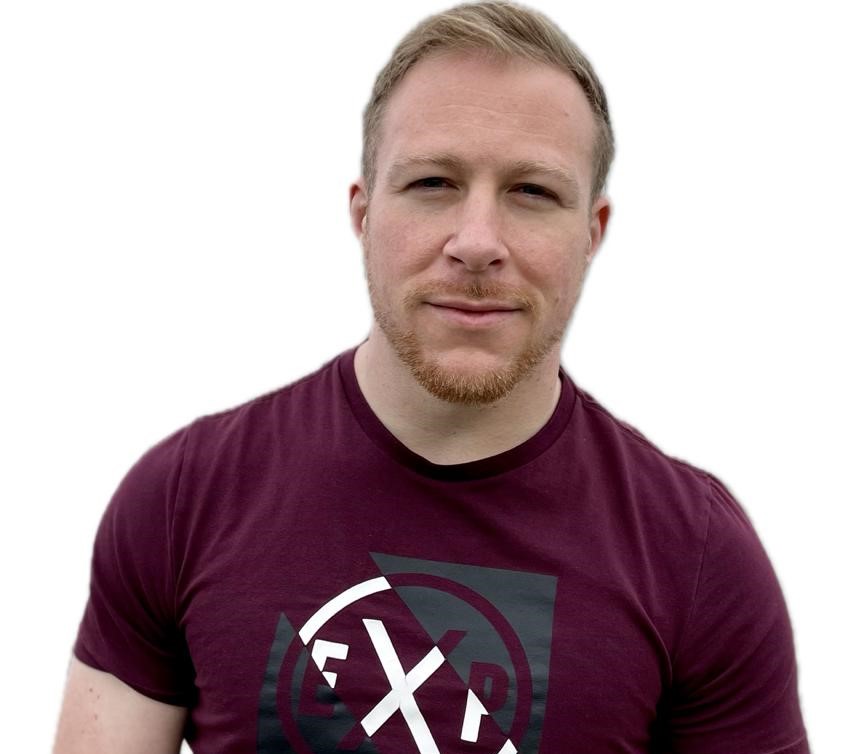 Dr. Dillon Landi joined the School of Human Movement and Nutrition Sciences at UQ as a Lecturer in 2024. Prior to UQ, he held faculty positions in the United Kingdom, the United States and Aotearoa New Zealand. Dillon is an international authority on LGBTQIA+ research in Sport, Health and Physical Education, with a strong focus on promoting equity, diversity and inclusion. He has received multiple awards from prestigious organisations worldwide, including the American Educational Research Association (AERA), the International Association for Physical Education in Higher Education (AIESEP), the British Educational Research Association (BERA) and SHAPE America. Dillon is the Managing Editor of Physical Education and Sport Pedagogy (Q1, Taylor Francis) and serves on the editorial board of Sport, Education and Society (Q1, Taylor Francis). He received his PhD from the University of Auckland (Aotearoa New Zealand) and holds two postgraduate degrees from Columbia University (New York, USA).
Dr. Dillon Landi joined the School of Human Movement and Nutrition Sciences at UQ as a Lecturer in 2024. Prior to UQ, he held faculty positions in the United Kingdom, the United States and Aotearoa New Zealand. Dillon is an international authority on LGBTQIA+ research in Sport, Health and Physical Education, with a strong focus on promoting equity, diversity and inclusion. He has received multiple awards from prestigious organisations worldwide, including the American Educational Research Association (AERA), the International Association for Physical Education in Higher Education (AIESEP), the British Educational Research Association (BERA) and SHAPE America. Dillon is the Managing Editor of Physical Education and Sport Pedagogy (Q1, Taylor Francis) and serves on the editorial board of Sport, Education and Society (Q1, Taylor Francis). He received his PhD from the University of Auckland (Aotearoa New Zealand) and holds two postgraduate degrees from Columbia University (New York, USA).
Dr Graham Lee
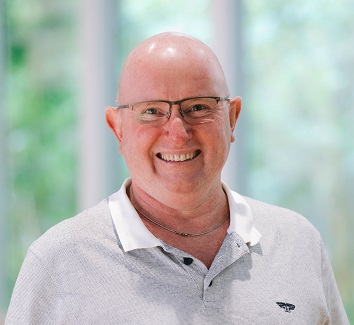 Dr. Graham Lee is an early-career researcher in the sociology of physical activity at the School of Human Movement and Nutrition Sciences at the University of Queensland. He serves as the course coordinator for "Nutrition, Sport, and Physical Activity Management - Industry Placement" and is a sessional tutor in the School of Social Sciences.
Dr. Graham Lee is an early-career researcher in the sociology of physical activity at the School of Human Movement and Nutrition Sciences at the University of Queensland. He serves as the course coordinator for "Nutrition, Sport, and Physical Activity Management - Industry Placement" and is a sessional tutor in the School of Social Sciences.
Graham's PhD research at the University of Queensland focuses on nonverbal interactions among children during physical activity. By examining moments of emotional expression, their thesis describes how children communicate their experiences and evaluations while participating in physical activities. The findings from this research aim to inform the development of community-based initiatives that enhance community health through increased physical activity participation for children with disability and improved coach education.
With a strong foundation built through his Master's degree in Sports Management and extensive experience in various leadership roles—including Director of Information Security and Risk at Queensland Health, Chief Operating Officer at Football Queensland, and Operations Manager for the Brisbane Paralympic Football Program, which promotes a community-based exercise program for children of all abilities—Graham actively engages with the Technology, Football, and Disability communities.
Associate Professor Carl Woods
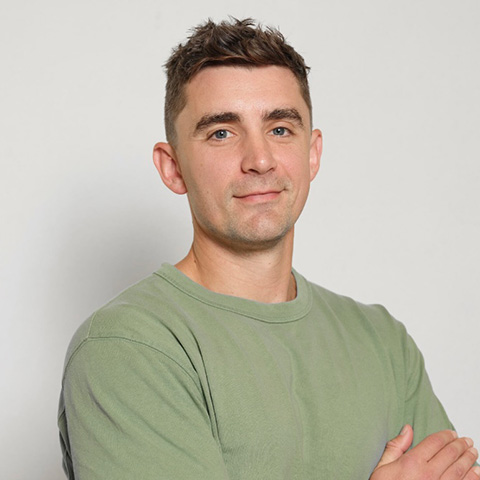 Associate Professor Carl Woods is a theoretical skill acquisition scientist, studying human-environment interactions at the intersection of sport science and ecological psychology. In addition to his appointment at the University of Queensland, he is the Lead for Learning Design at the Queensland Academy of Sport, working with a variety of National Sporting Organisations.
Associate Professor Carl Woods is a theoretical skill acquisition scientist, studying human-environment interactions at the intersection of sport science and ecological psychology. In addition to his appointment at the University of Queensland, he is the Lead for Learning Design at the Queensland Academy of Sport, working with a variety of National Sporting Organisations.
Carl has a unique blend of theoretical and applied experiences, having held research leadership positions within the Institute for Health and Sport at Victoria University, while coordinating coaching science and innovation with the Port Adelaide Football Club.
Given these diverse experiences, his research spans three major themes: 1) theoretical advancements to the field of sport science; 2) applied insights to guide practice task design in high performance sport; 3) environmental design to support exploratory physical activity and ecologically literate behaviour.
Associate Professor Sjaan Green
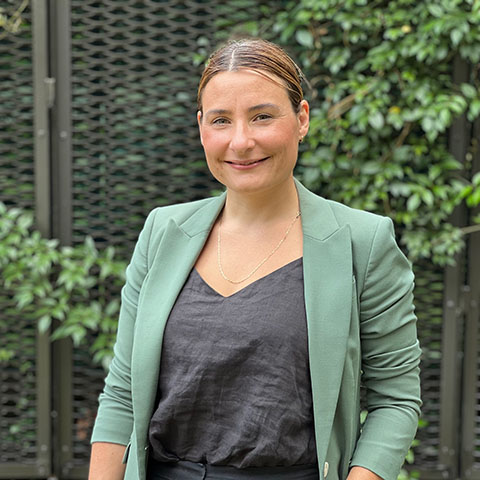 Associate Professor Sjaan Gomersall is Associate Director and Principal Research Fellow at the Health and Wellbeing Centre for Research Innovation at School of Human Movement and Nutrition Sciences and a Teaching and Research academic in Physiotherapy at the School of Health and Rehabilitation Sciences at The University of Queensland. Established in 2022, the Health and Wellbeing Centre for Research Innovation (HWCRI) is a collaborative, co-funded research centre by The University of Queensland and Health and Wellbeing Queensland.
Associate Professor Sjaan Gomersall is Associate Director and Principal Research Fellow at the Health and Wellbeing Centre for Research Innovation at School of Human Movement and Nutrition Sciences and a Teaching and Research academic in Physiotherapy at the School of Health and Rehabilitation Sciences at The University of Queensland. Established in 2022, the Health and Wellbeing Centre for Research Innovation (HWCRI) is a collaborative, co-funded research centre by The University of Queensland and Health and Wellbeing Queensland.
The HWCRI combines world class research expertise in physical activity, nutrition and health at The University of Queensland, with the reach and capacity of Health and Wellbeing Queensland to integrate, deliver and evaluate evidence-based programs that provide scalable, equitable access to improve the health and wellbeing of all Queenslanders (and beyond). She is an international advocate for physical activity and health and is the President of the International Society for Physical Activity and Health.
Sjaan is passionate about leveraging Olympic leveraging and sport for health to improve participation in physical activity. One example is a project funded by Olympism365, which aims to utilise technology to better support grass roots coaches to assess the support needs of people with disability to promote inclusion and positive sport experiences.
Dr Jessica Lee
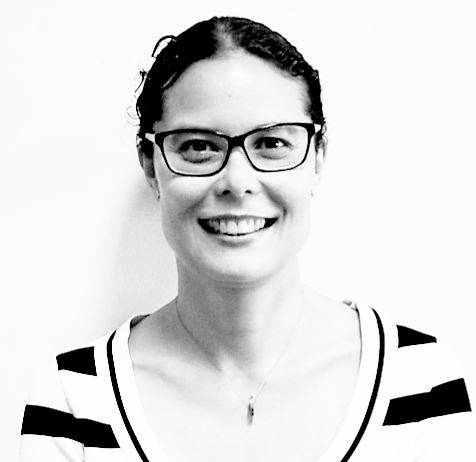 Dr Jessica Lee's research, funded by the IOC's Olympic Studies Centre, explores the learning cultures and educational experiences of elite athletes and contributes valuable insights into athletes' educational pathways and transitions. More broadly, Jessica's work focuses on equity and inclusion in sport, physical activity, and health, particularly among young people.
Dr Jessica Lee's research, funded by the IOC's Olympic Studies Centre, explores the learning cultures and educational experiences of elite athletes and contributes valuable insights into athletes' educational pathways and transitions. More broadly, Jessica's work focuses on equity and inclusion in sport, physical activity, and health, particularly among young people.
Dr Kiah Smith
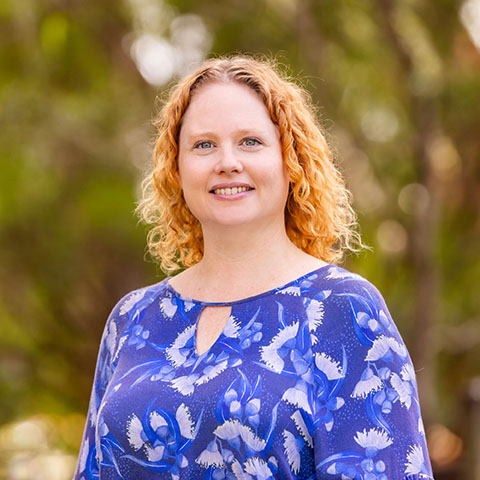 Dr Kiah Smith is a Sociologist with expertise in environment, sustainable development and food systems. With publications on food justice, food security, climate resilience, financialisation, ethical trade, green economy, sustainable livelihoods, gender empowerment and food system governance, Kiah uses qualitative, participatory methodologies to examine the emergence and creation of transformative policy making that is systems-focused and inclusive of social-ecological perspectives. She is the leader of Fair Food Futures and theme lead of ‘Social Justice, Rights and Empowerment at the Centre for Policy Futures, The University of Queensland.
Dr Kiah Smith is a Sociologist with expertise in environment, sustainable development and food systems. With publications on food justice, food security, climate resilience, financialisation, ethical trade, green economy, sustainable livelihoods, gender empowerment and food system governance, Kiah uses qualitative, participatory methodologies to examine the emergence and creation of transformative policy making that is systems-focused and inclusive of social-ecological perspectives. She is the leader of Fair Food Futures and theme lead of ‘Social Justice, Rights and Empowerment at the Centre for Policy Futures, The University of Queensland.
Steering Committee
- Professor John Cairney - Director QCOPS - hos@hmns.uq.edu.au
- Dr Sharon Hinton - Exec Manager Office of Games Engagement - s.hinton@uq.edu.au
- Professor Bruce Abernethy - Exec Director Office of Games Engagement - b.abernethy@uq.edu.au
- Dr Stephen Townsend - Research Fellow QCOPS - s.townsend@uq.edu.au
- Mikaeli Costelloe - Chief Community Engagement Officer Advancement and Community Engagement - mikaeli.costello@uq.edu.au
- Peta Rake - Director and Senior Curator at UQ Art Museum - p.rake@uq.edu.au
- Rachael Watson OAM PLY - UQ Student (B Social Work) and Paralympian - rachael.watson@uq.edu.au
- Professor Brent Ritchie - Head of Business School - b.ritchie@uq.edu.au
- Professor Damien Hine - Professorial Research Fellow Queensland Alliance for Agriculture and Food Innovation - QAAFI - d.hine@uq.edu.au
- Professor Lisa McDaid - Director Institute for Social Science Research – ISSR - l.mcdaid@uq.edu.au
- Bryan Pryde - CEO UQ Sport - bryanp@uqsport.com.au
- Professor Gene Moyle - Chair of the Queensland University Games Engagement Committee
Honorary Associate Professor Ian Jobling – Patron
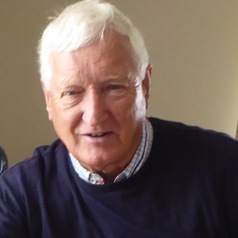
Honorary Associate Professor Ian Jobling is an internationally renowned researcher and educator of Olympic and Paralympic histories, and a former Head of School at the UQ School of Human Movement and Nutrition Sciences.
Dr Jobling founded the UQ Centre for Olympic Studies in the year 2000 to encourage and foster greater awareness and understanding about the Olympic Movement within The University of Queensland and the broader community. Although formally retired from academia, he remains an active researcher on Olympic and Paralympic matters. Dr Jobling’s academic achievements, his connections to the IOC and AOC, and his passion for the Olympic and Paralympic movements make him well suited to guide the UQ Centre for Olympic and Paralympic Studies as its inaugural patron.
